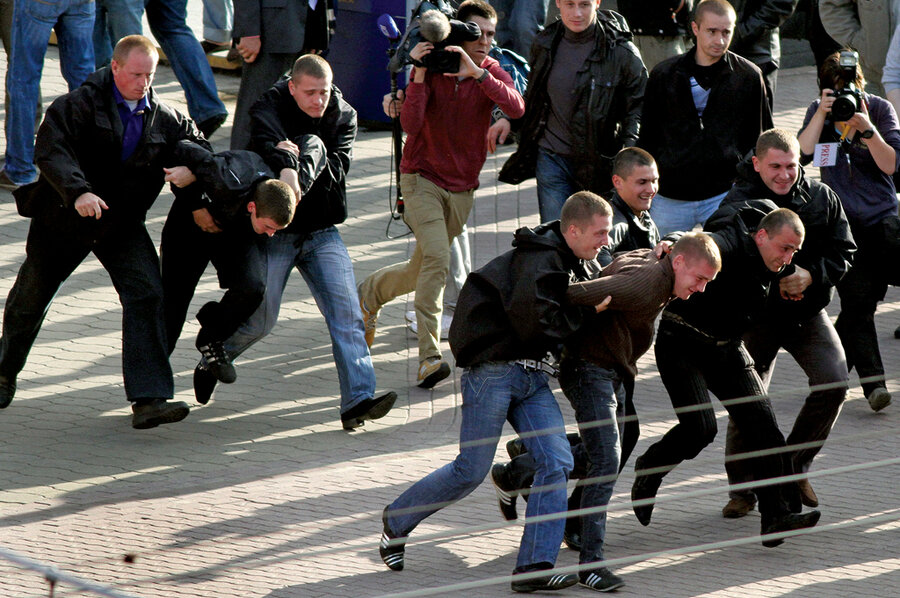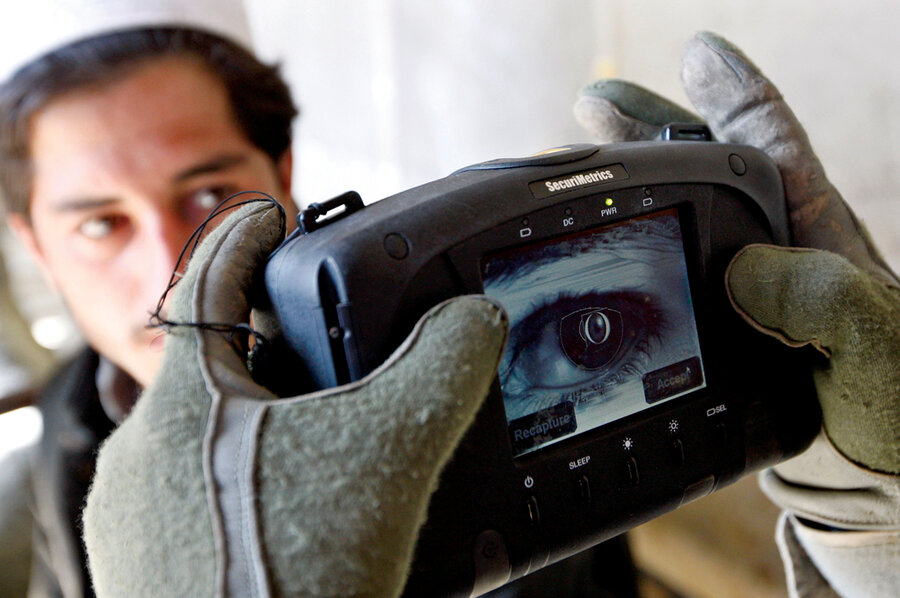Good Reads: No cyber-utopia for activists
Loading...
That we are living in a world increasingly connected by the digital revolution is a given. But are the Internet, social media, and the expanding array of technologies that can detect signs of a famine as easily as they can help an authoritarian state track dissidents, a boon or an Orwellian bane?
The answer is, of course, somewhere in the middle. But the positive side of the ledger has generally gotten a lot more attention in the press than the negative. Now, that’s starting to change.
The end of 'cyber-utopia'
Jamie Kirchik has a long essay in The American Interest just out on Evgeny Morozov’s 2011 book “The Net Delusion” (highly recommended by me), and summarizes his central argument this way: “Morozov argues that the Internet is not the unmitigated boon that … assorted “cyber-utopians” make it out to be. It’s a tool that, in addition to serving as a resource for democracy activists and their well-intentioned supporters in the West, is no less useful, and at times more so, for the authoritarians attempting to repress them.”
Take Syria, where Youtube, Twitter, and Facebook have been successfully used by activists to get information and video about the war there to the world, but have also increasingly been penetrated by Syrian intelligence agents, who can find a treasure trove of personal links, movements, and information from data mining.
Writing in the Daily Telegraph, David Blair argues that “the 13 months of Syria’s revolt have starkly illustrated the limits of social media as an engine of revolution, and of the claims made for the Internet’s transformative power.”
He writes that linking up on Twitter makes activists today more vulnerable to the regime they’re fighting, than, say the Algerian insurgency was against the French in the late 1950s. The Algerian fighters had tight, person-to-person cells that were difficult to penetrate. “The whole point of these platforms is ease of access and use … they are inherently easy to penetrate. As such, social media is the exact opposite of a useful tool for a revolution. Had Twitter existed in the 1950s, perhaps Algeria would have stayed French for another decade or two.”
And it’s not just regimes like Syria that are interested in using Twitter as an intelligence tool.
Contest: can you find these faces in the crowd?
Oliver Belcher, a PHD candidate in geography at the University of British Columbia, writes at his Darpa Dreaming blog of recent innovations in using crowd-sourcing and social media as a form of intelligence gathering and surveillance. It’s of interest because as much as Twitter and Facebook have gained reputations as leveling tools for revolutionaries, they also can and are being used for spying and tracking the movements of people, at ever greater levels of sophistication.
The “Tag Challenge” sponsored by the US State Department had five people who agreed to serve as “suspects” and to be in public during the day of March 31 in Washington DC, New York, London, Bratislava, and Stockholm. Their pictures were posted on the Internet, with no other identifying information. The challenge? To find them and take a picture of them that day. The individual or team with the most pictures would win a $5,000 prize.
A team from MIT called “Crowdscanner” won the prize with three of the suspects snapped. They did it by recruiting agents for cash on Twitter and other social media sites. They offered $1 for recruiting a new member of the team (up to 2,000 members), $500 for sending in a picture of one of the suspects, and $100 to anyone who recruited someone who captured a picture (leaving them on the hook, in the worst case, for $5,000 – the same amount as the offered prize). They won by tracking down three of the suspects in 12 hours.
Mr. Bechler points out that these efforts are being driven to develop new intelligence and military tools, and that social and computer scientists are increasingly getting in on the act. “I’m writing an article on how this kind of research is integral to contemporary US military operations. And, it should come as no surprise that the computer scientists who are winning these prizes are consultants either for the US military, or are members of scientific advisory boards which contract through the military. “
Finally, new forms of technology are making life difficult for some agents of the state.
At Wired magazine’s Danger Room, Jeff Stein writes on how the expanding use of eye scanners and biometric passports are cramping spies’ style – a boomerang for surveillance advocates.
“The increasing deployment of iris scanners and biometric passports at worldwide airports, hotels and business headquarters, designed to catch terrorists and criminals, are playing havoc with operations that require CIA spies to travel under false identities,” he writes, and goes on quote a former field operative. “’If you go to one of those countries under an alias, you can’t go again under another name,’” explains a career spook, who spoke on condition of anonymity because he remains an agency consultant. ”So it’s a one-time thing — one and done. The biometric data on your passport, and maybe your iris, too, has been linked forever to whatever name was on your passport the first time.”






